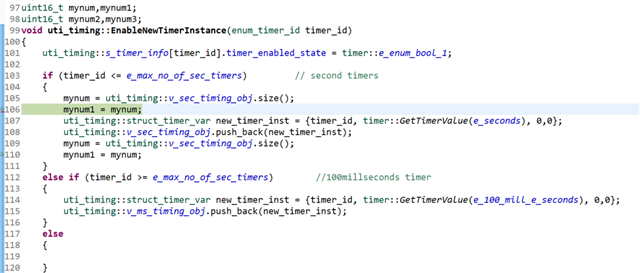Other Parts Discussed in Thread: MSP430WARE
Hello,
I have problem with a vector I declared in my code and the push_back that works with the vector. The code is below
uti_timing::struct_timer_var timer_inst = {timer_id, timer::GetTimerValue(e_seconds), 0,0};
uti_timing::v_sec_timing_obj.push_back(timer_inst);
The uti_timing::v_sec_timing_obj.push_back(timer_inst) does not get the variables declared in the timer_inst. I do not know why?
A snapshot of the debugger for the local variable is below
Snapshot of the vector variable value after the push_back
I chaged the timer::GetTimerValue(e_seconds) function to a 0 value but i still got the same problem.
I checked the entire code but did not find the source of the problem. The code had worked well on a C2000 launchpad platform.
I am using CCS12 and the compiler version TI v21.6.0.LTS and MSP430Ware 3.80.14.01.
Thanks




